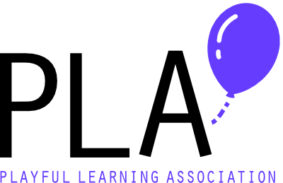Improvisation in ethical leadership training
Corresponding Author: Arran Stibbe
All authors:
Length: 60 minutes
Location: Terrace Room
Description:
This session will begin by outlining a theorical framework which sees ethical leadership as a process of co-creating socially constructed reality based on a shared ecological philosophy (or ecosophy). The framework draws from communicative leadership (Johansson et al., 2014), ecolinguistics (Stibbe, 2024a, 2024b), transformative leadership (Shields, 2017), and conversation analysis (Lester and O’Reilly, 2018). Seeing leadership in this way has important implications for leadership training, where what becomes central is building a shared ethical framework that considers not just humans but other species and the ecosystems that life depends on, and then engaging consciously in a process of co-constructing social reality through dialogue and interaction. It is a process of questioning the stories that we live by in our unsustainable industrial civilisation and creatively inventing new stories to live by, bringing new realities into being. However, it is very difficult to break out of the conventional stories that we live by and actively construct new worlds because the stories we live by are often seen as ‘just the way things are’. This is where improvisation (or ‘impro’) comes in, as a communicative discipline or discourse where shared reality is created in the moment in dialogue with others, without need to stay within the constrictions and conventions of current society. Originating from theatrical training (Johnstone, 2007), improvisation has expanded to be seen as a key skill for education and life (Goldie, 2015). This session will explore the role of improvisation in ethical leadership training with practical audience participation exercises that involve working together to create new shared realities. The exercises involve a lot of fun and laughter and appear trivial at first, but when seen in the context of ethical leadership they take on a new seriousness as acts of cooperative resistance to the structures of our unsustainable society. The techniques for ethical leadership training described in this session have been successfully implemented in an undergraduate English Literature degree and an MA Education degree, but can be incorporated into almost any course or professional training since rethinking the stories we live by is a core mission of all ethical educational institutions and organisations. You will come away from this session with original and radical ideas for social transformation and tools that can be put into practice in any educational situation to help develop effective and ethical leaders of the future.
References, web links and other resources:
Goldie, A., 2015. The Improv Book: Improvisation for Theatre, Education and Life. Oberon Books, Limited.
Johansson, C., D. Miller, V., Hamrin, S., 2014. Conceptualizing communicative leadership: A framework for analysing and developing leaders’ communication competence. Corp. Commun. Int. J. 19, 147–165.
Johnstone, K., 2007. Impro: improvisation and the theatre. Methuen Daram, London.
Lester, J.N., O’Reilly, M., 2018. Applied conversation analysis: social interaction in institutional settings, 1st edition. ed. SAGE Publications, Inc, Los Angeles.
Shields, C.M., 2017. Transformative Leadership in Education: Equitable and Socially Just Change in an Uncertain and Complex World, 2nd edition. ed. Routledge, New York.
Stibbe, A., 2024a. Ecolinguistics and leadership, in: Steffensen, S.V., Cowley, S., Döring, M. (Eds.), Language as an Ecological Phenomenon: Languaging and Bioecologies in Human-Environment Relationships. Bloomsbury Academic.
Stibbe, A., 2024b. Econarrative: ethics, ecology and the search for new narratives to live by. London: Bloomsbury
